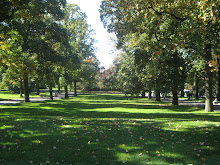
Boston.com had this interesting article that explains how the city is not what our natural habitat should be. Is the concrete jungle really that bad for our minds?
"The mind is a limited machine,"says Marc Berman, a psychologist at the University of Michigan and lead author of a new study that measured the cognitive deficits caused by a short urban walk. "And we're beginning to understand the different ways that a city can exceed those limitations."
One of the main forces at work is a stark lack of nature, which is surprisingly beneficial for the brain. Studies have demonstrated, for instance, that hospital patients recover more quickly when they can see trees from their windows, and that women living in public housing are better able to focus when their apartment overlooks a grassy courtyard. Even these fleeting glimpses of nature improve brain performance, it seems, because they provide a mental break from the urban roil.
This research arrives just as humans cross an important milestone: For the first time in history, the majority of people reside in cities. For a species that evolved to live in small, primate tribes on the African savannah, such a migration marks a dramatic shift. Instead of inhabiting wide-open spaces, we're crowded into concrete jungles, surrounded by taxis, traffic, and millions of strangers. In recent years, it's become clear that such unnatural surroundings have important implications for our mental and physical health, and can powerfully alter how we think.
I am sort of torn on this issue. I find some cities extremely pleasant and great places, others seem overcrowded and too aggresive for my liking. I do think they have a good point about how the lack of nature does have an impact on us.




No comments:
Post a Comment